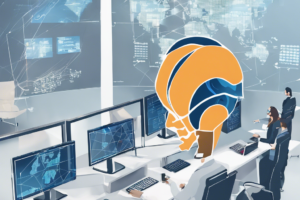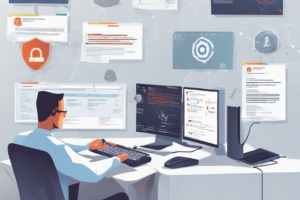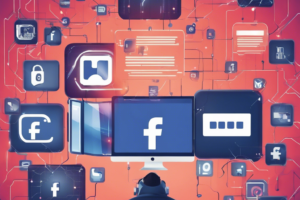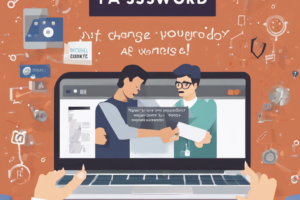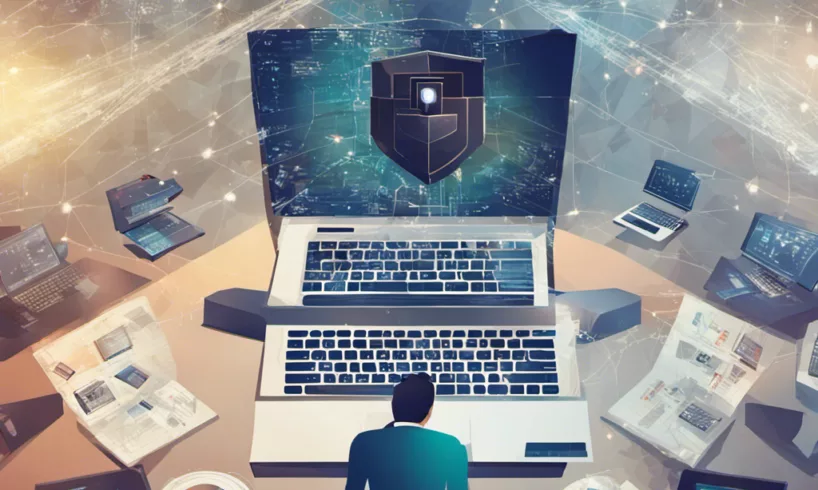
Following a series of high-profile cyberattacks, Microsoft unveils a comprehensive cybersecurity initiative to enhance the security of its software and services.
In the wake of several significant cybersecurity breaches, Microsoft has announced the launch of its Secure Future Initiative (SFI). This comprehensive effort aims to revolutionize the way the tech giant designs, builds, tests, and operates its software and services. With a focus on automation, artificial intelligence (AI), and improved security settings, Microsoft is determined to strengthen its defenses against increasingly sophisticated cyber threats. The SFI represents the company's most significant security undertaking since the introduction of its Security Development Lifecycle in 2004.
A History of Cybersecurity Challenges for Microsoft
Over the past few years, Microsoft has faced numerous cybersecurity incidents that have highlighted vulnerabilities in its systems. In 2018, the company was at the center of the SolarWinds attack, one of the most sophisticated cyberattacks ever recorded. In 2021, approximately 30,000 organizations' email servers were compromised due to a flaw in Microsoft Exchange Server. More recently, Chinese hackers breached US government emails through a Microsoft cloud exploit. These incidents have underscored the urgent need for Microsoft to enhance its cybersecurity measures.
Microsoft's Commitment to Change
Recognizing the gravity of the situation, Microsoft has embarked on a transformative cybersecurity journey with the of the Secure Future Initiative. The company's leadership, including Satya Nadella, Rajesh Jha, Scott Guthrie, and Charlie Bell, has outlined three key engineering advances that form the foundation of this initiative. These advances aim to bolster security in the short term and prepare for future threats.
Automation and AI in Software Development
Microsoft's first major change involves leveraging automation and AI throughout the software development process. By incorporating CodeQL, GitHub's code analysis engine, Microsoft aims to automate security checks during development. This integration will enable teams to identify and rectify bugs in the code more efficiently, significantly improving the overall security of Microsoft's software offerings.
Building an AI-Based “Cyber Shield”
Microsoft's commitment to cybersecurity extends beyond software development. The company is determined to build an AI-based “cyber shield” capable of protecting customers and countries worldwide. AI technology, combined with Microsoft's global network of data centers, will enable the rapid detection of threats, even amidst vast amounts of data. This proactive approach aims to counteract threat actors seeking to exploit vulnerabilities.
Accelerating Vulnerability Mitigation
One criticism Microsoft has faced relates to the time it takes to respond to major security vulnerabilities. In response, the Secure Future Initiative aims to reduce the time it takes to address cloud vulnerabilities by 50 percent. By leveraging automation, orchestration, and intelligence-driven tools and processes, Microsoft aims to enhance its ability to swiftly mitigate security risks, providing customers with a more robust defense against cyber threats.
Strengthening Encryption Key Protection
To protect against breaches like the recent Chinese hacking incident, Microsoft plans to harden the platforms safeguarding its encryption keys. By implementing confidential computing infrastructure, Microsoft ensures that identity data remains encrypted during computational processes, making it inaccessible to attackers. This additional layer of security aims to prevent encryption keys from falling into the wrong hands.
Enhanced Security Defaults
Microsoft is also prioritizing the improvement of security defaults for its customers. In the coming year, the company plans to enable more secure default settings for Multi-Factor Authentication (MFA) across a wider range of customer services. This expanded protection will focus on areas where customers require heightened security measures, ensuring a stronger defense against unauthorized access.
With the launch of the Secure Future Initiative, Microsoft is taking significant steps to address the cybersecurity challenges it has faced in recent years. By embracing automation, AI, and enhanced security settings, the company aims to fortify its software and services against evolving cyber threats. This comprehensive approach not only demonstrates Microsoft's commitment to protecting its customers but also highlights the urgent need for heightened cybersecurity measures in an increasingly interconnected world. As the threat landscape continues to evolve, Microsoft's Secure Future Initiative sets a new standard for cybersecurity efforts in the tech industry.

George Smith, with over a decade in tech journalism, excels in breaking down emerging tech trends. His work, spanning tech blogs and print, combines in-depth analysis with clarity, appealing to a wide readership. George's pieces often explore technology's societal impact, showcasing his foresight in industry trends.



